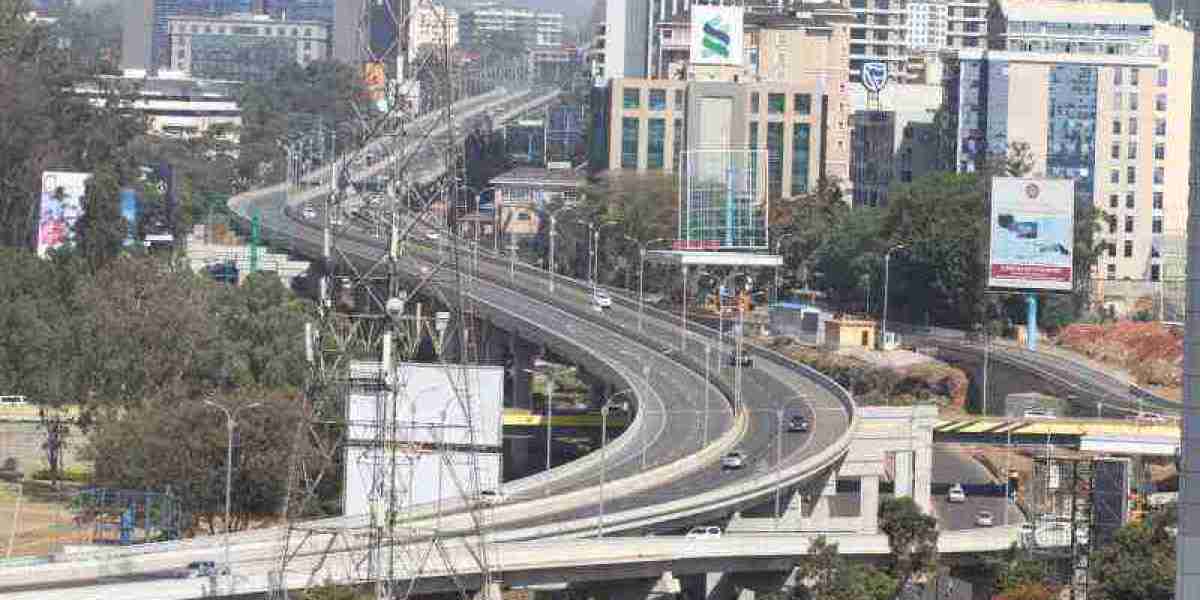It is the most populated city in the United Arab Emirates (UAE) and is renowned for its luxury shopping and modern architecture represented by the likes of Burj Khalifa, which stands 830 meters tall and dominates the skyline, as well as a bustling nightlife.
Nairobi, the capital of Kenya, shares some of these characteristics, albeit on a smaller scale due to varying economic strength and the number and quality of investors in each city.
Like Dubai, Nairobi boasts some of Africa's tallest skyscrapers, including the Britam Tower, a 200-meter-tall office complex in Upper Hill. The 31-storey tower ranks as the third largest in Africa.
There is also the recently opened Nairobi Global Trade Centre - a 184-meter, 43-storey office block and the 33-storey, 163-meter-tall UAP Old Mutual Tower.
Nairobi also boasts a vibrant nightlife and a number of foreign luxury brands that have set up shop in the country.
And now like Dubai, the fortunes of Nairobi could change significantly following the conclusion of a comprehensive economic partnership agreement (CEPA) between the United Arab Emirates and Kenya in February.
Years of growth have transformed Dubai from a desert backwater into a trade and tourism hub popular with global professionals.
The Gulf Emirate is popular with global expatriates due to amenities such as security and working systems.
Manmade lakes and islands, air-conditioned malls, and an indoor ski slope pepper Dubai's desert.
And now Kenyan and UAE trade and private sector officials believe the two regional hubs can collaborate better to tap from each other’s strengths on the back of the new trade deal.
The new trade partnership gets Kenya closer to the trappings of one of the most attractive economic hubs in the Gulf region.
Kenya's Trade Minister Rebecca Miano says the deal would play an important role in enabling Kenyan exports to reach important markets in Asia and the Middle East.
She says it would also play a crucial part in “stimulating investment inflows that will further develop our national capabilities".
Analysts say the pact is very critical to Kenya because the East African economy was one of the first African countries with which the UAE launched bilateral trade deal talks in 2022 as part of a strategy to diversify its oil-based economy.
Non-oil trade between the Gulf state and Kenya reached $3.1 billion in 2023, up 26.4 per cent in 2022, UAE's Minister for Foreign Trade, Thani Al Zeyoudi said in a post on social media platform X.
Several Kenyan firms are already expressing interest in setting up in Dubai the Dubai Government Economic Office said recently.
“We are seeing a lot of interest from the Kenyan firms,” said a Dubai Government Economic Office spokesperson.
Managers at Jebel Ali Free Zone, including Ebtesam Al Kaabi, Vice President Sales cited Jebel Ali Free Zone's robust incentives for Kenyan firms.
Located adjacent to DP World's flagship Jebel Ali Port in Dubai, Jafza is one of United Arab Emirates' largest specialised business parks, commonly referred to locally as a free trade zone, where full foreign ownership is permitted.
Jebal Ali's free zone hosts more than 8,000 companies now, up from 500 in 1995, according to its website.
According to Dubai Industrial City Executive Vice President in charge of Industrial Leasing Saud Abu Al Shawareb Kenyan firms can take advantage of the gateway status of Dubai to export to the rest of the world.
IFFCO, the leading FMCG multinational headquartered in the UAE, agrees with the above sentiment.
The firm says it is open to tapping opportunities in the Kenyan market or working with Kenyan firms to leverage the massive incentives, huge market and production infrastructure in Dubai.
In the UAE, the company launched the first plant-based meat alternatives factory in the Middle East under the THRYVE brand.
Established in 1975, IFFCO is a multinational group headquartered in the UAE. Its leading FMCG brands, including London Dairy, Tiffany, Noor, Rahma, Al Baker, Hayat and Savannah, and a portfolio of industry solutions and services.
The company has 95 operations in 50 countries, supported by over 15,000 employees, and its 80 plus brands are available in over 100 countries.
Dubai-based companies have been increasingly establishing their presence in Kenya. Recently, food and luxury travel firms have entered the market or expressed their interest in doing so.
In October 2023, Miftah, a Dubai-based luxury travel firm, ventured into the Kenyan market, marking its first expansion on the African continent. The company plans to offer customized travel, luxury lifestyle services, health and wealth management, personal executive services, relocation, and real estate services.
Similarly, Nutridor, a food and beverage company, announced its intention to set up a new $15 million (Sh2.25 billion) processing plant in Kenya for value-added dairy products like cheese and butter.
According to data from the Financial Times' investment tracker fDi Intelligence, Dubai's foreign direct investment (FDI) in Kenya reached $253 million (Ksh38.3 billion) in the five years preceding June 2023. This signals the growing interest in key sectors such as food processing, financial services, IT, and software.
As more UAE companies and those from the rest of the world set shop in the country, more office spaces are under construction in Nairobi, including Africa's tallest building, a 70-story, 300-meter tall structure that will house a hotel, restaurants, offices, a luxury shopping mall, and homes.
This building will be taller than the
Carlton Centre in South Africa, which has 50 floors and stands at 223 meters tall.
As Nairobi City’s population continues to grow buoyed by rural-urban migration, foreign businesses and expatriates, the County’s Governor, Johnson Sakaja administration recently reviewed floor limits on residential buildings allowing landlords to construct houses up to 25 floors in areas near airport installments with a proposal tabled to go up to 75 floors in some specific zones.
“Nairobi is 696 square Kilometres, in 2050 the population will be 10.5 Million people and since we can’t expand the city, the only way to go is up,” said Sakaja.
Dubai trade and company officials say the Arab emirate, which has successfully plowed oil wealth into other sectors from tourism to real estate, wants to double non-oil trade and investments with Kenya.
Dubai, as the commercial and trading hub of the Middle East, has long been regarded as the gateway of trade between Kenya and the rest of the world.
But the relationship between the two countries has been marked by a huge trade imbalance in favour of the UAE.
Dubai business leaders told The Standard earlier that Sheikh Mohammed bin Rashid Al Maktoum, the vice-president and prime minister of the UAE and Ruler of Dubai, had singled out Kenya as “one of the most promising business partners for Dubai” in the coming years.
“We are looking for a win-win partnership with Kenya,” said the Dubai Chamber of Commerce in 2019. “We believe Dubai holds the key to unlocking Kenya’s economic potential,” said Maktoum.


